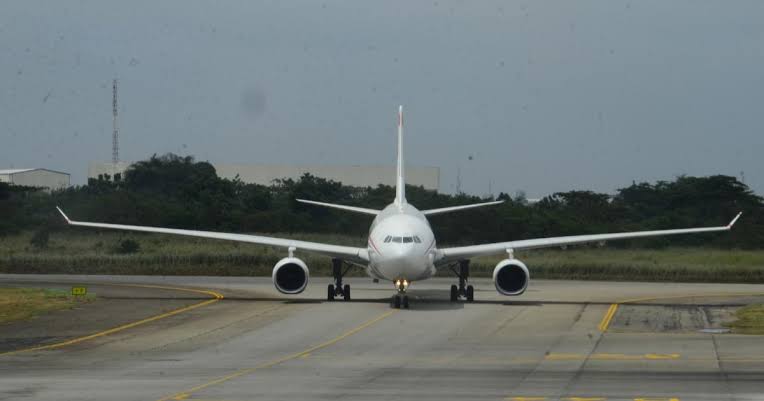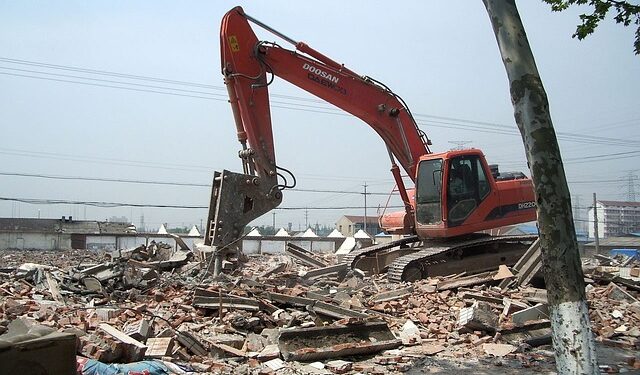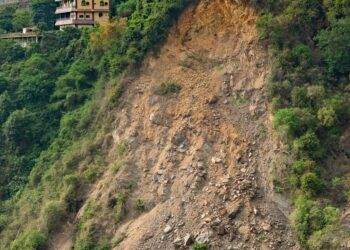The Punch reports that landowners in Nuwalege, Abuja, who were forcibly ejected by the Federal Government, are calling for compensation following the demolition of their homes on January 15. The demolition was carried out by the Federal Capital Development Authority (FCDA) at the request of the Nigerian Air Force (NAF) to make way for an extension of the Presidential Air Fleet (PAF).
The demolition reportedly displaced more than 200 families who resided in Nuwalege, a rural community located along the Nnamdi Azikiwe International Airport Road in Abuja. The affected residents have since been forced to seek shelter in nearby communities, including Zamani, Sauka, Giri, Iddo, and Gwagwalada.
Project Details and Displaced Residents’ Concerns
While details of the PAF project and its funding remain undisclosed, there are indications that construction activities will commence soon, as NAF personnel have already been mobilized to the project site. However, the displaced residents are raising concerns about the lack of compensation for their lost homes, and many have been struggling since the demolition.

The affected families are appealing to the Federal Government, the Nyesom Wike-led Federal Capital Territory Administration, the Nigerian Air Force, and the Ministry of Aviation to address their plight and provide the necessary compensation to help them rebuild their lives.
Government and NAF Responses
During a citizens’ engagement with the community last December, the Director of the FCT Department of Development Control, Muktar Galadima, mentioned that the Air Force had notified the FCT minister about the plan to relocate the residents. However, the status of compensation remained uncertain. Galadima noted that discussions with the Air Force suggested that some form of compensation had been paid, but further investigations were needed to determine to whom and when the payments were made.
In January, while addressing journalists, Galadima claimed that residents were given a two-month notice before the demolition. He added that the FCTA had informed the Air Force of its policy on relocating indigenous communities. According to Galadima, structures belonging to indigenous people were left intact because, by law, they must be relocated and compensated, while non-indigenous residents were to be moved out to allow the Air Force to take over the land.
Residents’ Testimonies
Contrary to the government’s claims, residents of Nuwalege told The Punch that they were not notified about the demolition beforehand, nor were they paid any form of compensation. They also stated that no houses were spared during the demolition exercise.
Wisdom James, an artisan, disclosed that the residents had previously been informed that the demolition would take place in two years. However, the authorities came much sooner and cleared the community without prior warning.
Obadiah Tanko, an indigene of Nuwalege, recounted that the community had existed long before the Air Force base was built next to it, with some of their ancestors buried on the site now owned by the NAF. He expressed disappointment that despite initial assurances, the entire community was eventually demolished, leaving residents without compensation.
Another resident, Olatunde, shared her ordeal, revealing that her family was displaced on January 15, 2024, without any compensation. She explained that the demolition scattered her family, forcing them to live separately due to the lack of adequate shelter.
NAF’s Position on Compensation
NAF spokesperson, AVM Edward Gabkwet, urged the victims to direct their grievances to the Ministry of Defence or the FCTA. He emphasized that NAF does not pay compensation for lands allocated to it by the Federal Government.
Lack of Government Response and Legal Implications
As of now, there has been no response from the Federal Government regarding compensation or any follow-up for the displaced residents. Although it is statutorily provided that all lands belong to the Federal Government, there are also legal provisions for compensating residents displaced from their homes by the government. The Federal Government’s perceived indifference to the plight of the displaced indigenes raises concerns about the fairness and legality of their actions, potentially representing a violation of the rights that the law is meant to protect.

















